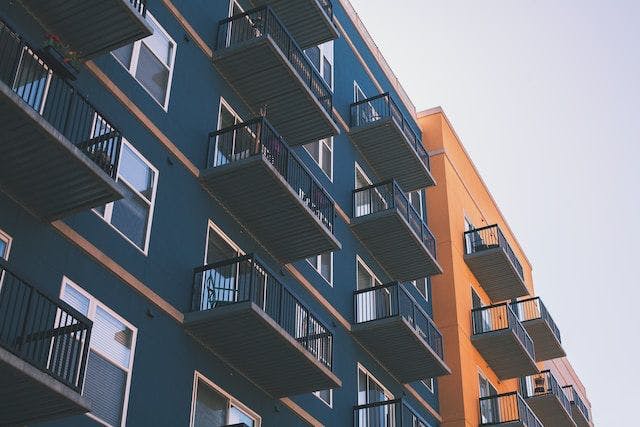Are you considering buying a home in Raleigh NC? With its vibrant economy, job opportunities, and excellent quality of life, it’s no wonder that Raleigh is among the most desirable places to live in the United States. But before you start your search for your dream home, there are several things that you need to know.
What is the current housing market like in Raleigh? What types of homes are available in different neighbourhoods? How much can you expect to pay for a house in this city? And what financing options are available for homebuyers? In this article, we will explore these questions and more, providing you with everything you need to know before making one of the biggest investments of your life.
The Current Housing Market in Raleigh
The current state of the housing market in Raleigh is marked by high demand and limited supply, resulting in rising prices and fierce competition among buyers. The impact of COVID-19 on Raleigh’s housing market has been significant, causing disruptions to the usual buying and selling processes. In the early stages of the pandemic, many sellers withdrew their properties from the market due to uncertainty about the future. However, this led to a shortage of available homes for sale, which increased competition among buyers.
Despite these challenges, there are some predictions for Raleigh’s housing market that indicate positive growth ahead. The city continues to attract new residents due to its strong economy and quality of life factors like excellent schools, low cost of living, and favourable climate. These factors have contributed to increasing demand for homes in recent years. Additionally, as more people continue to work remotely after the pandemic subsides, there may be a shift towards larger homes with home offices or dedicated workspaces that can accommodate remote work needs. Overall, while Raleigh’s housing market currently faces challenges due to COVID-19 impacts and limited supply issues, there are reasons to remain optimistic about its future growth potential.
Average Home Prices and Inventory Levels
The current section provides an analysis of the average home prices and inventory levels in Raleigh, revealing that the median home price in Raleigh increased by 5.9% over the past year, reaching $321,000, while the number of homes for sale decreased by 24.8%. This data indicates that Raleigh’s real estate market is experiencing a strong seller’s market due to high demand and low supply. Buyers should expect fierce competition when searching for properties within this local market.
The increase in median home prices can be attributed to several factors, including a growing economy, job opportunities, and population growth. Additionally, low interest rates have incentivized buyers to invest in real estate despite rising prices. However, as inventory levels continue to decline and demand remains high, it is likely that prices will continue to rise at a steady pace in the foreseeable future. Potential buyers should carefully consider their budget and seek professional guidance when navigating this competitive housing market.
Types of Homes Available in Different Neighborhoods
This section provides a comprehensive analysis of the different types of homes available in various neighborhoods within the Raleigh area, offering valuable insights for individuals interested in investing in the local real estate market. The city boasts a diverse range of home styles that cater to a variety of preferences and needs. From large single-family homes with spacious yards, to modern townhouses with trendy designs, Raleigh has it all.
The neighborhoods themselves also offer unique amenities and atmospheres that appeal to different lifestyles. For example, North Hills is known for its upscale shopping and dining options, making it an attractive location for those who enjoy city living and luxury amenities. Meanwhile, Wakefield offers more suburban-style living with family-friendly parks and recreational areas. Understanding these distinctions can help potential buyers narrow down their search and find the perfect home in the ideal neighborhood.
Financing Options for Homebuyers in Raleigh
Financing options are readily available for potential homebuyers in Raleigh, allowing them to secure necessary funds and potentially overcome financial barriers that may have prevented them from investing in the local real estate market. One option is a conventional mortgage, which typically requires a credit score of at least 620 and a down payment of at least 3%. The Federal Housing Administration (FHA) also offers loans with lower credit score requirements and down payments as low as 3.5%, making it an attractive option for first-time homebuyers. Additionally, veterans can apply for VA loans that offer competitive interest rates and no down payment requirement.
Another financing option is the North Carolina Housing Finance Agency’s Home Advantage Mortgage program, which provides fixed-rate mortgages with down payment assistance and reduced mortgage insurance premiums. The program has income limits depending on household size and location of the property being purchased. Another program offered by the agency is NC Home Advantage Tax Credit, which allows borrowers to claim a federal tax credit up to $2,000 annually on their mortgage interest payments. These programs aim to make homeownership more accessible to low- and moderate-income households while promoting sustainable homeownership practices. With these options available, potential homebuyers can explore various financing pathways tailored to their unique needs and circumstances while enhancing overall home affordability in Raleigh.
Frequently Asked Questions
Are there any zoning restrictions or building codes to be aware of when buying a home in Raleigh?
Zoning restrictions and neighborhood covenants are common features that regulate land use and development in various municipalities. In Raleigh, these regulations are enforced by the city’s zoning ordinance and subdivision regulations, which outline specific guidelines for the construction of buildings, placement of structures, and land use within designated zones. Compliance with building codes and permits is also required to ensure that all structures meet safety standards and other requirements set forth by regulatory bodies. As such, potential homebuyers in Raleigh should be aware of these zoning restrictions and building codes when purchasing a property to avoid any legal or financial complications down the line.
How long does it typically take for a home purchase to close in Raleigh?
The typical closing timeline for a home purchase in Raleigh varies depending on various factors. However, the average timeframe is around 30 to 45 days from the time of mortgage pre-approval. This period allows both parties to finalize any outstanding paperwork, inspections, and appraisals required before closing. It is essential to note that unexpected delays may arise during this process, such as document discrepancies or issues with the property’s title. As such, it is crucial to have open communication with your real estate agent and loan officer throughout the process to ensure a smooth and timely closure of your home purchase transaction.
What are some common issues found during home inspections in Raleigh?
Mold detection, plumbing issues, roof problems, and foundation concerns are some of the common issues found during home inspections in Raleigh. Mold growths can be caused by moisture buildup in areas such as basements, bathrooms, or poorly ventilated attics. Plumbing issues may range from minor leaks to major problems such as damaged pipes due to tree roots or outdated plumbing systems. Roof problems can include missing shingles, leaks, or poor installation leading to water damage and potential structural damage. Foundation concerns may arise from cracks in walls or floors indicating settling or structural shifting which can lead to costly repairs if not addressed promptly. Professional home inspections are highly recommended for any prospective home buyer to identify these and other potential issues before making a purchase decision.
What is the average cost of homeowner’s insurance in Raleigh?
The cost of homeowner’s insurance in Raleigh, North Carolina is influenced by several factors such as the location, age and condition of the home, coverage limits, and deductible amounts. The average annual cost of homeowner’s insurance in Raleigh is $1,038. This figure is slightly higher than the state average of $983 but lower when compared to other cities in North Carolina such as Wilmington where homeowners pay an average of $1,460 annually for their insurance. Therefore, potential homeowners in Raleigh need to compare rates and coverage options from different insurance providers before deciding on which policy to purchase.
Are there any special considerations for buying a historic home in Raleigh?
Historic preservation can present unique challenges for homebuyers seeking to purchase a historic home in Raleigh. Renovation of such properties requires adherence to stringent regulations and guidelines set forth by local authorities, which may impact the renovation process and overall cost. Additionally, structural issues inherent in older homes may require specialized knowledge and expertise to address effectively. Homebuyers interested in purchasing a historic property should consider working with professionals who are knowledgeable about historical preservation practices and have experience with similar projects. By doing so, they can ensure that their renovation efforts meet all requirements while maintaining the unique character of their historic property.
Conclusion
In conclusion, Raleigh’s housing market is currently experiencing a surge in demand for homes. The average home prices and inventory levels vary depending on the neighbourhood. Homebuyers have various financing options available to them, including FHA loans and conventional mortgages. When looking for a home in Raleigh, it is essential to understand the different types of homes available in each neighbourhood.
Furthermore, it is crucial to work with a reputable real estate agent who can guide you through the process and help you find the perfect home that meets your needs and budget. By exploring all financing options and understanding the current housing market trends, homebuyers can make informed decisions about buying their dream home in Raleigh. Remember to do your research before making any significant financial decision; knowledge is power when it comes to purchasing real estate!



Comments are closed.